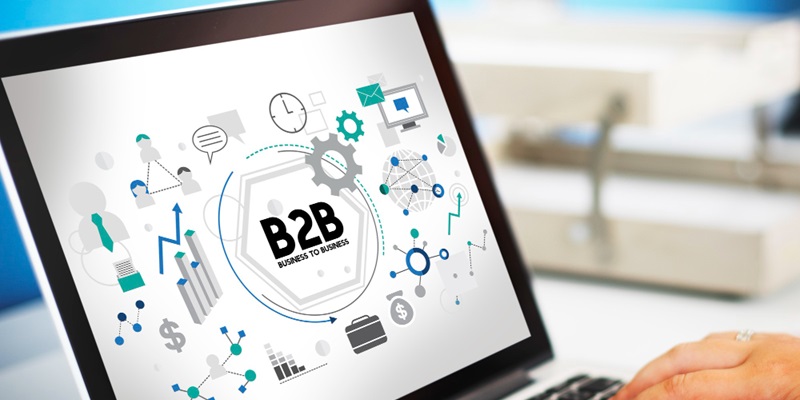The integration of a B2B portal with different systems is a game-changer for businesses. It streamlines processes, enables consistent data exchange, and maximizes operational efficiency. By integrating ERP systems, businesses can manage core processes seamlessly, synchronizing orders, inventory, and invoices. CRM integration enhances visibility into customer data, driving personalized experiences and improving sales forecasting. Integration with inventory management systems optimizes stock levels, minimizes stockouts, and reduces costs. Integrating payment gateways and financial systems ensures secure and efficient payment processing. Supply chain and third-party logistics integration enhances visibility, tracking, and collaboration. Embracing these integrations empowers businesses to adapt to evolving market demands, boost customer satisfaction, and stay ahead of the competition.
In today’s fast-paced business world, efficiency and seamless processes are vital for success. The integration of the B2B portal with different systems plays a crucial role in connecting multiple applications or platforms, rationalizing processes, and enabling consistent data exchange. This article explores the various systems involved in the integration process and highlights the benefits it brings to businesses of all sizes.
Overview of the Integration Process
The integration process varies depending on the systems involved and business-specific requirements. It requires a systematic approach, careful planning, and expertise to ensure that all systems work together seamlessly. With the right integration strategy, businesses can significantly enhance operational efficiency and improve decision-making capabilities.
Integration with ERP systems
Enterprise Resource Planning (ERP) systems are the backbone of any business, managing core processes such as accounting, HR, inventory, supply chain, warehouse, payroll, and more. Integrating the B2B portal with ERP systems brings numerous benefits. It enables the synchronization of bulk orders from suppliers to wholesalers, retailers, and other stakeholders. Additionally, it allows for real-time inventory level updates, facilitating efficient stock management and reducing the risk of stockouts. Through this integration, invoices can also be generated automatically, minimizing manual effort and optimizing financial processes.
Integration with CRM systems
Customer Relationship Management (CRM) systems play a pivotal role in managing customer data, interactions, and facilitating the sales process. Integrating CRM systems with the B2B portal enhances visibility into crucial customer order details, buying preferences, and purchase history. This integration empowers businesses to personalize customer experiences, improve sales forecasting, and tailor marketing strategies according to customer behavior, ultimately driving customer satisfaction and loyalty.
Integration with inventory management systems
Effectively managing inventory is essential for businesses to meet customer demands and minimize costs. Integration of inventory management systems with the B2B portal helps optimize inventory levels by providing real-time updates on stock availability, order fulfillment, and returns. This integration enables businesses to stay on top of inventory management, reducing the risk of overstocking or running out of crucial products. With accurate and up-to-date inventory information, businesses can make informed decisions, ensuring high customer satisfaction and reducing operational inefficiencies.
Integration with payment gateways and financial systems
Efficient payment processing is crucial for maintaining successful B2B transactions. Integration of payment gateways and financial systems with the B2B portal enables secure and seamless transactions. This integration allows businesses to streamline the payment process, reducing the chances of errors or delays. By automating payment reconciliation and generating accurate financial reports, businesses can save time, enhance cash flow management, and improve overall financial efficiency.
Integration with supply chain management systems
Visibility into the supply chain is vital for businesses to manage logistics, track shipments, and ensure timely delivery. Integrating supply chain management systems with the B2B portal enhances visibility into supply chain activities, logistics, and shipping. It allows businesses to monitor inventory movements, track orders, and identify potential bottlenecks or delays. With real-time insights, businesses can proactively resolve supply chain issues, optimize operations, and meet customer expectations promptly.
Integration with third-party logistics systems
Collaboration with third-party logistics providers (3PLs) is common in B2B operations. Integration with the B2B portal enhances collaboration by enabling real-time tracking of shipments, managing deliveries, and improving fill rate and efficiency. Through this integration, businesses can streamline communication with 3PLs, reduce manual effort, and enhance coordination to ensure smooth and on-time deliveries.
The integration of a B2B portal with different systems is a game-changer for businesses. It streamlines processes, enables consistent data exchange, and maximizes operational efficiency. By integrating ERP systems, businesses can manage core processes seamlessly, synchronizing orders, inventory, and invoices. CRM integration enhances visibility into customer data, driving personalized experiences and improving sales forecasting. Integration with inventory management systems optimizes stock levels, minimizes stockouts, and reduces costs. Integrating payment gateways and financial systems ensures secure and efficient payment processing. Supply chain and third-party logistics integration enhances visibility, tracking, and collaboration. Embracing these integrations empowers businesses to adapt to evolving market demands, boost customer satisfaction, and stay ahead of the competition.

